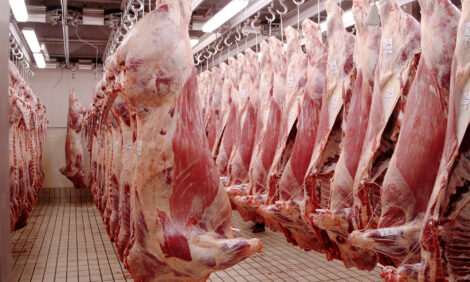



Organic Livestock Farmers Feed Problems
UK - Almost half organic livestock farmers in England and Wales are considering reducing stock numbers, or even leaving organic farming, due to increasing feed costs, according to a recent survey by the organic marketing groups Graig Producers and Caledonian Organics.6% will reduce stock numbers, and a further 9% will leave organic farming, if feed prices remained at 2006 levels or above
Survey by the organic marketing groups Graig Producers and Caledonian Organics.
Results from the survey of Group members, across Wales, the Borders and South West England, showed that 36% will reduce stock numbers, and a further 9% will leave organic farming, if feed prices remained at 2006 levels or above, and there was no increase in organic lamb and beef prices. In Scotland the figures were slightly lower at 23% saying they would reduce numbers, and 8% preparing to stop farming organically.
Shortages of organic cereals and proteins have led to significant increases in feed prices over the last 12 months, with organic wheat for example up some 50% over the period. Prices, together with changing regulations requiring that 100% of feed must be fully organic, have put severe financial pressure on many organic livestock farmers.
The survey revealed that a number of farmers are looking at producing more feed on-farm, and forage quality will become more important. Nevertheless home-grown cereal production is not an option for many in wetter or higher regions.
Nigel Elgar, Director of Graig Producers, and himself an organic beef and sheep farmer in mid-Wales said "This is a very disturbing finding. If organic livestock farmers do not make a reasonable income, they will revert to conventional farming, and it will take two years of organic conversion to replace them. Whilst we don't want to reduce sales in organic beef and lamb, we need prices which reflect the costs of production. Farmers need to receive a sustainable price for their animals, but in return the consumer receives a first-class product with many advantages to the environment and human health."
TheCattleSite News Desk


